A Journey Through Time with Mika Metal Fabricating
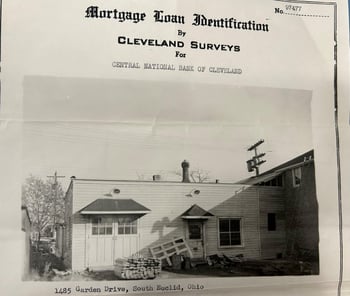
In 1939, as the world braced for war, Cleveland witnessed the opening of the Main Avenue Bridge, a symbol of progress and connectivity. That same year, Fred J. Mika founded B & F Metal Fabricating in South Euclid, Ohio, initially focusing on custom HVAC ductwork.
As the city celebrated infrastructural advancements, Mika Metal quietly began its now 85 year journey in the bustling industrial landscape of Cleveland.
The early 1940s were tumultuous years marked by global conflict. Cleveland played its part in the war effort, notably with the establishment of the NACA (now NASA) at Cleveland airport in 1940 and the opening of the Cleveland Bomber Plant (later the I-X Center) in 1942. Mika Metal, adapting to the needs of the time, shifted its focus to producing metal ammunition boxes for the Cleveland Tank Company in 1941, showcasing its flexibility and commitment to national efforts.
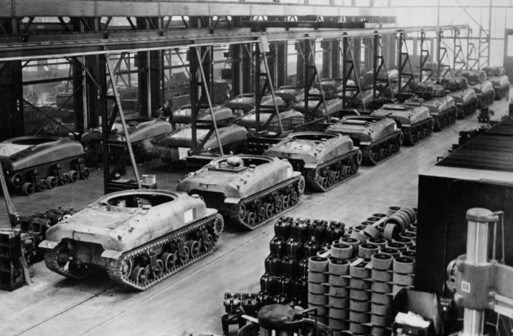 Photo from hemmings.com
Photo from hemmings.com
Post-war Cleveland experienced significant growth. The city's population peaked in 1950, making it the 7th largest in the nation, reflecting a period of prosperity and expansion. In this environment of post-war optimism, Fred J.G. Mika took over the company in 1960 after serving in the Air Force during the Korean War.
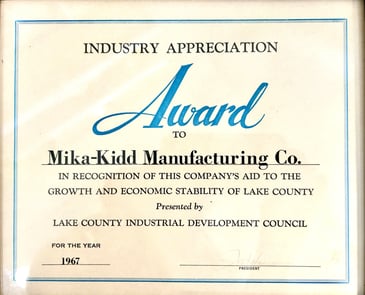 This change in leadership marked a new era for Mika Metal, as it transformed into Mika-Kidd Manufacturing in 1967, relocating to Willoughby and diversifying into electronic assemblies.
This change in leadership marked a new era for Mika Metal, as it transformed into Mika-Kidd Manufacturing in 1967, relocating to Willoughby and diversifying into electronic assemblies.
During the 1950s and 1960s, Cleveland continued to grow as a significant urban center, with developments like the establishment of Cleveland State University in 1964. Mika Metal's diversification into electronics manufacturing resonated with these city-wide advancements, reflecting the dynamic changes in the region's economic and technological landscape.
The 1970s and 1980s brought new challenges and opportunities. As Mika Metal continued to adapt and expand, Cleveland experienced its own transformations. The city's population began to decline, indicative of the broader urban challenges faced by many American cities during this time.
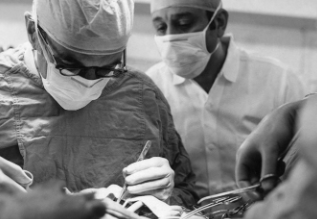
However, Cleveland also saw significant developments, such as the Innerbelt Freeway opening to its full length in 1962 and the groundbreaking coronary artery bypass operation at the Cleveland Clinic in 1967, showcasing the city's continued innovation and advancement.
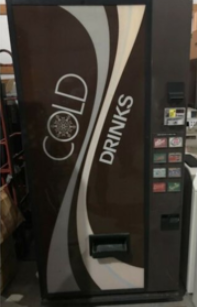 The 1970s and 1980s witnessed further transformation for Mika Metal, paralleling Cleveland's technological advancements. In July 1970, the company was renamed Mika-Snyder Metal Fabricating, expanding its product line to include vending machines for Dixie-Narco.
The 1970s and 1980s witnessed further transformation for Mika Metal, paralleling Cleveland's technological advancements. In July 1970, the company was renamed Mika-Snyder Metal Fabricating, expanding its product line to include vending machines for Dixie-Narco.
The 1990s marked another significant milestone, with the company venturing into the medical market by 1997. Fabricating products for Cleveland-based companies like Marconi (now Philips) and Steris, Mika Metal established deep connections in the burgeoning medical industry, mirroring Cleveland's growing reputation as a medical and technological hub.
From 1980 to the present, Mika Metal and Cleveland have faced and embraced significant changes. In 1980s Cleveland, while there were economic challenges, there were also revitalization efforts like the construction of the Sohio (BP) Building, Cleveland was named an All-America City then and multiple times in the future. Reflecting the city's resilience, Mika Metal continued to grow, adapt, and innovate.
In the 1990s, Cleveland's urban landscape was transformed with developments like the Gateway Sports Complex and the Rock and Roll Hall of Fame, signaling a cultural renaissance. Mika Metal paralleled this growth by continuing to expand into new markets.
Entering the 21st century, Cleveland saw milestones like the Cleveland Cavaliers winning the NBA Championship in 2016. Mika Metal, matching the city's forward momentum, expanded its facilities and ventured into new industries like telecommunications.
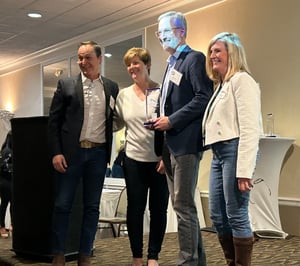
In 2002, Mika Metal expanded its facilities, moving to an 80,000 sq. ft. location on Hamann Parkway in Willoughby, symbolizing its continued growth and adaptation to market needs. The years that followed saw further diversification and innovation. In 2019, amid the global COVID-19 pandemic, the company was sold by the third-generation Mika family members to business partners Scott Shelfer and Ryan Thomas. During the ensuing three years, the organization underwent a significant transformation, upgrading its facilities and embracing a more progressive, innovative culture. This period further saw Mika Metal's foray into new markets such as self-service vending kiosks and power distribution enclosures.
2023 marked a pinnacle in Mika Metal's history, as the Willoughby Western Lake County Chamber of Commerce awarded it the Small Business of the Year. This accolade underscored the company's enduring commitment to quality, innovation, and community engagement.
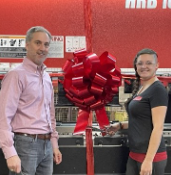
From 1939 to the present, the City of Cleveland and Mika Metal illustrate a remarkable journey of resilience, adaptation, and progress. Mika Metal's evolution from a small job shop to a leader in precision custom sheet metal manufacturing mirrors Cleveland's dynamic nature. This journey through the decades showcases how the company and the city navigated through times of war, economic upheaval, and technological change. Their shared history is a testament to the enduring spirit of innovation and the ability to thrive amidst challenges, reflecting a deep-seated legacy that continues to shape their future.
Related Articles:
- https://blog.mikafab.com/en-us/mika-metal-fabricating-fans-first-team-always-culture
- https://blog.mikafab.com/en-us/small-business-of-2023-award
Featured Image:
The Main Avenue Bridge
Cuyahoga County Engineer’s Photography Collection I The Cleveland Memory Project

Comments